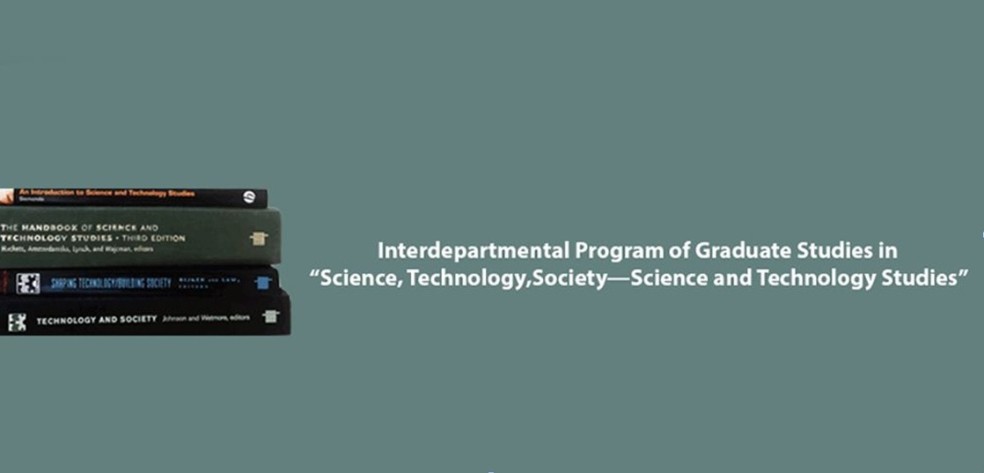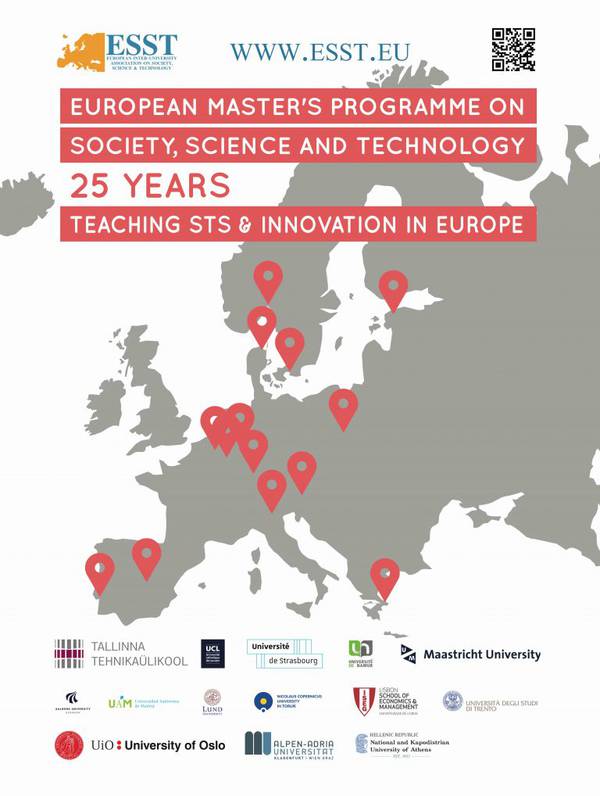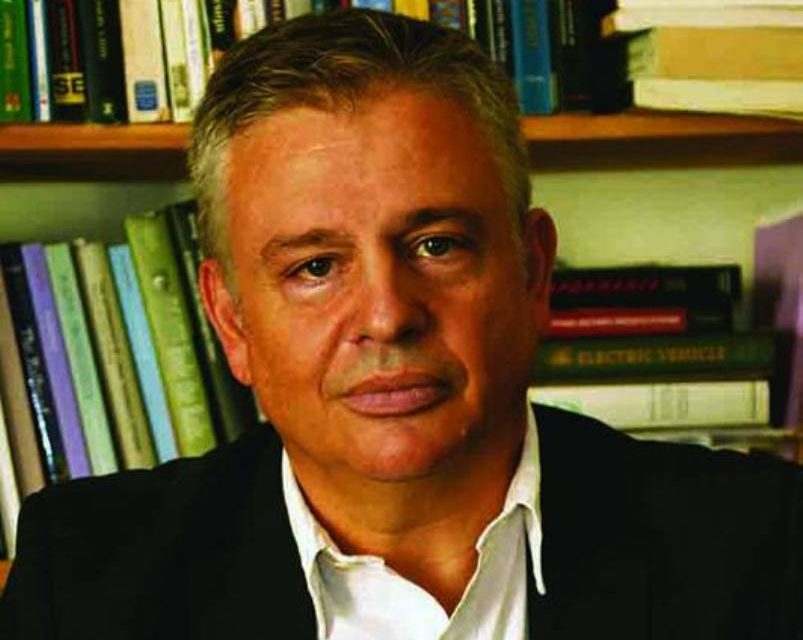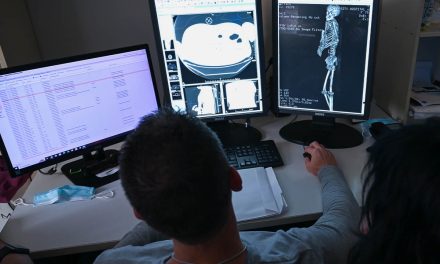The web portal Study in Greece is campaigning for the international visibility of Greek Universities and the comparative education advantages of our country. In particular, the campaign focuses on the foreign language study programs that Greek Universities offer to Greek and international students. The initiative is supported by the General Secretariat of Higher Education of the Ministry of Education and Religious Affairs and the General Secretariat for Greeks Abroad and Public Diplomacy of the Ministry for Foreign Affairs. In this context, a number of educational programs and actions are presented in detail on a regular basis, such as undergraduate and postgraduate programs, summer schools etc, to inform international students about the many foreign language options offered by Greek Universities.
Study in Greece interviewed Professor Aristotle Tympas, vice president of the Interdepartmental Program of Graduate Studies in ‘Science, Technology, Society—Science and Technology Studies on the Master’s Program and its benefits. Aristotle Tympas, a specialist in the study of technology from the humanities and the social sciences, is a professor at the Department of History and Philosophy of Science, School of Science, National and Kapodistrian University of Athens. His studies combined engineering (MSc, Aristotelio University, 1989), technology and science policy (MSc, Georgia Tech, 1995) and history-sociology of technology (PhD, Georgia Tech, 2001). Professor Tympas has also helped to introduce and teach courses in the digital, environmental and medical humanities at several other universities, in Greece and abroad. Former chair (2017-2019) of the management committee of the ‘Tensions of Europe: Research Network on History, Technology and Europe’, Tympas currently serves as vice president of the International Master’s Programme on Society, Science and Technology (ESST), as director of the Interdepartmental Graduate Program ‘Science, Technology, Society—Science and Technology Studies’ and as chair of the Department of History and Philosophy of Science.
 Please tell us in a few words what the Master in Science, Technology, and Society—Science and Technology Studies is all about.
Please tell us in a few words what the Master in Science, Technology, and Society—Science and Technology Studies is all about.
The Department of History and Philosophy of Science and the Department of Informatics and Telecommunications of the School of Science, National and Kapodistrian University of Athens, organize and offer the Interdepartmental Program of Graduate Studies in ‘Science, Technology, Society—Science and Technology Studies’. The purpose of the Program is to train graduates who could analyze, interpret, intervene and make recommendations on issues of relevance to science, technology and medicine, based on interdisciplinary perspectives from the human and the social sciences.
Program graduates will be specially prepared to contribute critically to issues connected to informatics and telecommunications (e.g. AI, Big Data, Robotics-Automation, the Internet of Things), the pursuit of environmental sustainability (e.g. through appropriate energy and transportation technologies), biology, medicine, biotechnology and biomedicine (e.g. from gene editing, stem cells and biobanking to the study of pandemics). They will be able to identify the best options and make recommendations regarding economic and social policies (e.g. concerning inequality, work, social rights, gender, disability), applied ethics (e.g. ethics of science, technology and medicine, business ethics), innovation, research and development, regulation and the law, and issues of contemporary importance (e.g. science, technology and borders/migration).
The Program admits a maximum of twenty (20) students per annum from all fields, first cycle studies graduates from Greek universities or from equivalent foreign institutions. To graduate, they have to successfully complete ten (10) courses or seven (7) courses and a thesis. Time limits for the completion of the program: minimum of two (2) semesters, maximum of four (4).
 Given that the Program is taught entirely in English, would you like to tell us what the attraction and benefits of this Master’s program are for international students?
Given that the Program is taught entirely in English, would you like to tell us what the attraction and benefits of this Master’s program are for international students?
Upon completion of the program, they receive a Diploma from the National and Kapodistrian University of Athens plus a Certificate or Diploma from the European Master’s Program on Society, Science and Technology (ESST). As regards fees, one thousand (1000) euros may be waived for up to 30% of the students, on the basis of criteria specified by relevant Greek legislation.
 What is the relation between the European Master’s Program on Society, Science and Technology and the Master in Science, Technology, Society — Science and Technology Studies?
What is the relation between the European Master’s Program on Society, Science and Technology and the Master in Science, Technology, Society — Science and Technology Studies?
The European Master’s Program on Society, Science and Technology (ESST) is an option available to all students admitted to the Interdepartmental Program of Graduate Studies in “Science, Technology, Society—Science and Technology Studies”. Graduates of the Interdepartmental Program of Graduate Studies in “Science, Technology, Society—Science and Technology Studies” receive the ESST Certificate. Should they choose to write their master’s thesis according to the ESST requirements, they may also receive the ESST Diploma (upon successful evaluation of the thesis).
In this case, they may choose one of several Research Specializations available. Four of the available ESST Specializations are offered through the National and Kapodistrian University of Athens (NKUA): Specialisation 1: Philosophy and History of Science and Technology; Specialisation 2: Science, Technology and Sustainability: North-South Comparisons; Specialisation 3: Digital Technology in Society; Specialisation 4: Law, Science and Technology.
 In what way has the collaboration between the Department of History and Philosophy of Science and the Department of Informatics and Telecommunications inspired the creation of this new Master’s program?
In what way has the collaboration between the Department of History and Philosophy of Science and the Department of Informatics and Telecommunications inspired the creation of this new Master’s program?
The two departments collaborate in many ways. Several courses of the Department of History and Philosophy of Science are available as electives to the student of the Department of Informatics and Telecommunications. The two departments jointly participate in research centres of excellence (e.g. on digital heritage, digital transformation etc).
 What has been the output of this Master’s degree so far? Is it satisfactory? Does it attract a substantial number of foreign students every year?
What has been the output of this Master’s degree so far? Is it satisfactory? Does it attract a substantial number of foreign students every year?
Over 15 students graduate from the program every year. Several international students came to the program through Erasmus agreements to write their thesis. The program attracts international applicants from around the world. In the last two years, it received applications from the US, Europe, Asia and Africa.
 Could we argue that Greece is an attractive study destination for an international student, and if so, why?
Could we argue that Greece is an attractive study destination for an international student, and if so, why?
Certainly! Greece is a very affordable European country that offers excellent university education, a uniquely pleasant climate, a safe urban environment, world-class island and mountain retreats, exceptional cuisine, friendly people, and it comes, of course, with a very special history.
For more info visit the Website: https://sts.phs.uoa.gr/
F.K.














